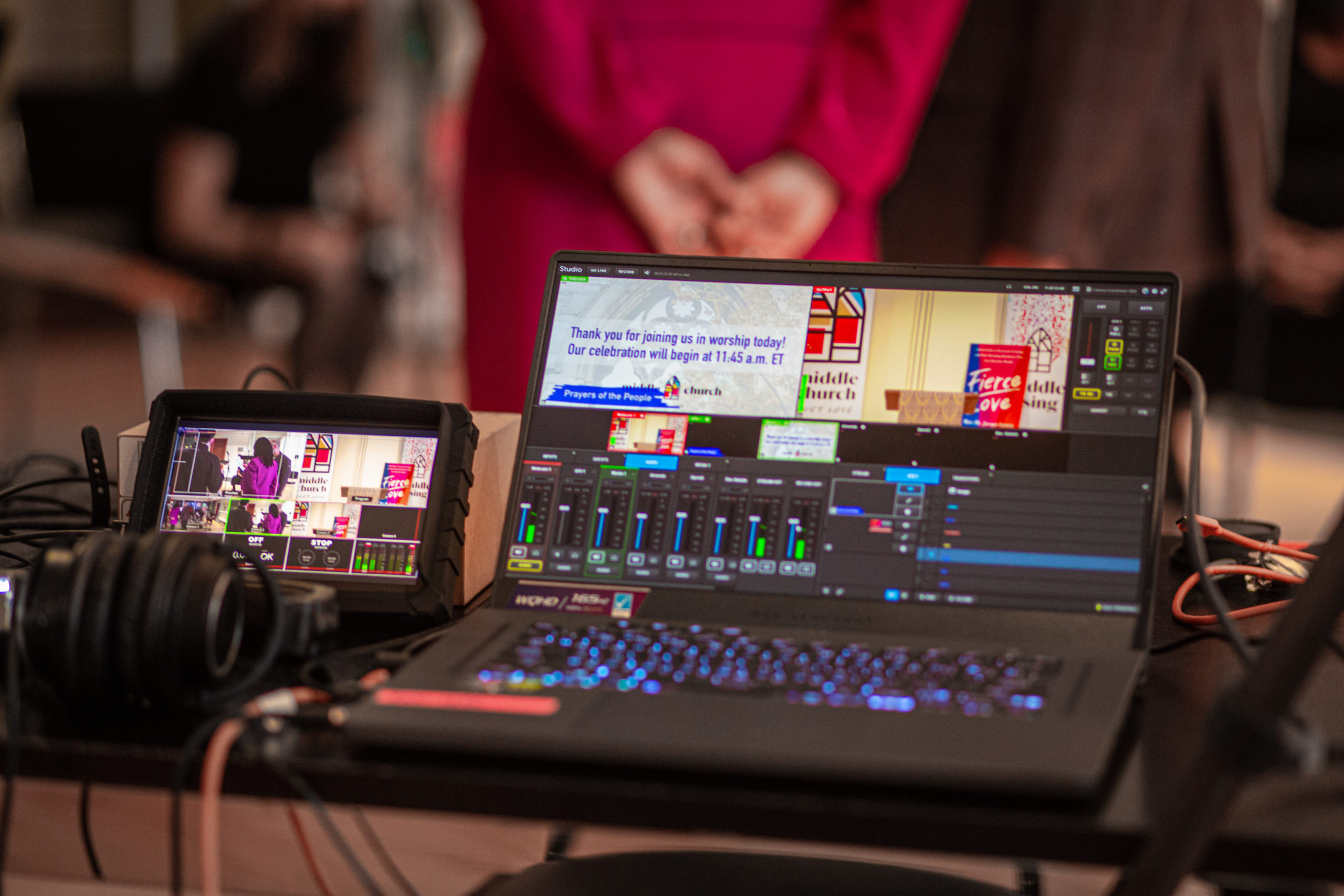I will not abandon my people

One of my members at Middle Church is a mother in Idaho who came seeking theology that affirmed how wondrously her trans daughter is made. Another is a Black man who lives in Louisiana but joins worship online because the white churches around him preach a racist gospel. They sing in our virtual pews with a woman from New York City recovering from cancer who cannot safely join us in person. Together, they offer love to a member who’s very sick and may not leave his house again.
I share these stories because, when The New York Times publishes a column on how “online church … diminishes worship and us as people,” the author clearly isn’t seeing the beauty that surrounds me. When she writes how “embodiment is an irreducible part of that wholeness,” she’s prioritizing particular forms of embodiment over the bodies of people I love.
I live for worshipping in person. I adore hearing hymns echo off our walls, the way my praises mingle with my neighbors’. I thrive hugging my people, gripping hands in prayer, tapping our feet to gospel music, breaking bread from a shared loaf, preaching while I look into their eyes. But this experience isn’t possible for dozens of our members — for some it will never be. And I know elevating my own aesthetic and experiential preferences above other people’s spiritual and physical needs isn’t God’s love: It’s idolatry dressing up as orthodoxy. If we value physical proximity more than our neighbor’s well-being, it’s not God we’re worshipping.
Really consider how ending online worship would affect our members: Should a Black person worship somewhere that treats her skin like it’s sinful for the “virtue” of experiencing that hatred in person? Should a gay man who loves attending our queer theology classes instead enter parish doors where his personhood will be condemned? In a spiritual landscape where hundreds of people have joined Middle Church hungry for God’s radical love, should we slam our doors in their faces because they don’t happen to live in New York City? Many folks — LGBTQIA+ people in particular — say that Middle is the first place they ever heard that God loved all of them. To cast them out now would be spiritual violence.
Moreover, for disabled siblings, churches’ failure to offer full welcome is a long-standing sin we cannot repeat. As many have expressed in the past few days, online services during the pandemic were the first time they’d been able to attend church in years. Suggesting disabled people be content with home visits while they’re excluded from worship offers crumbs to folks who deserve a full place at the table. One thing I know deeply as a Black person in America: “Separate but equal” will never be equal. I refuse to segregate our community.
What truly angers me is that all of this — the prescribed exclusion and abandoning folks to harm — is as unnecessary as it is cruel. It’s absurd to suggest faith in how “God became flesh (and) lived in a human body” cannot coexist with online worship. We believe in a God who can cross the threshold between divinity and humanity, but the Holy Spirit can’t move through zeroes and ones? Is a God who expressed her love by accompanying the Israelites through displacement in the desert unable to find us in our living rooms? Where love is, God is. And God is abundantly alive in our digital sanctuaries.
This isn’t an abstract conviction for me. It’s personal. When our physical sanctuary burned in a catastrophic fire, the outpouring of love we received over the internet kindled my faith in our own resurrection. The beauty of watching our virtual choir sing, members separated by oceans but bound together in praise, embodies that hope. As hatred grows and multiplies in virtual spaces, why would we stop offering fierce love in response? Our future is constrained by the limits of our imagination: If we cannot dream of healthier digital relationships, we will keep spiraling further into violence.
Ultimately, denigrating online worship isn’t about embodiment or the importance of feeling vibrations from the choir. It’s about fear. Instead of answering God’s call to “make all things new,” some religious leaders are clinging to worship models that were broken long before COVID-19. But for every person rejecting change, I see dozens daring to serve people better, expanding our understanding of “neighbor” beyond our ZIP codes.
At Middle Church, we’ve been clear with our people: We’re never going back. We will not abandon family who have laughed, sung and mourned with us. Even when it’s safe to gather in person again, we will always have hybrid worship and programs; robust virtual options that do not treat online members as an afterthought. This is not without difficulty: It’s genuinely hard to create worship that simultaneously meets the needs of folks sitting in a pew and those behind a screen. But I’d much rather cherish that challenge than return to circumstances I cannot accept.